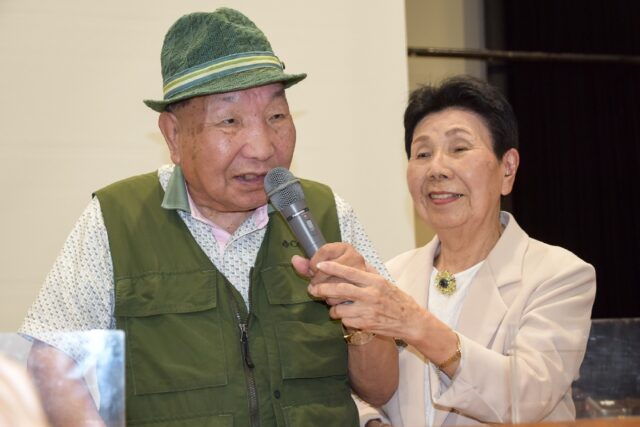Japanese prosecutors said on Tuesday they will not appeal against last month’s acquittal of the world’s longest-serving death row prisoner, Iwao Hakamada.
After a long fight for justice led by his sister, a court declared last month that Hakamada, 88, was innocent of the quadruple murder for which he spent 46 years waiting to be executed, mostly in solitary confinement.
The court in Shizuoka, outside Tokyo, ruled that police tampered with evidence and said the ex-boxer had suffered “inhumane interrogations meant to force a statement” that he later withdrew.
Hakamada was first convicted in 1968 of robbing and killing his boss, the man’s wife and their two teenage children.
Japan’s top prosecutor Naomi Unemoto said in a statement a decision had been made not to appeal against the Shizuoka court’s decision because Hakamada had been “put in legal limbo for such a long time”.
“We have decided, after thorough consideration, that it is not appropriate to prolong this situation,” Unemoto said.
However, she also said prosecutors were “deeply dissatisfied” that the Shizuoka tribunal had found that evidence had been fabricated, calling the conclusion logically flawed.
The court found that police had daubed blood on clothes that were then planted to be found at the crime scene.
“The ruling is absolutely unacceptable and should be considered worthy of an appeal,” Unemoto said.
Hakamada’s sister Hideko rejoiced at the news, smiling broadly at a news conference in Shizuoka.
“I am so happy that Iwao finally stops being a death-row prisoner,” the 91-year-old said. “I want him to attain true freedom going forward.”
She added that she hopes her ageing brother will “live a bit longer” now that he is exonerated.
“We just wish we can live an ordinary, quiet life.”
Japan and the United States are the only two major industrialised countries that still use capital punishment. It has strong public support in Japan, where scrapping it is rarely discussed.
Hakamada was granted a retrial in 2014 and was released from prison, although legal wrangling meant the proceedings only began last year.
He is the fifth death row inmate granted a retrial in Japan’s post-war history. All four previous cases also resulted in exonerations.
Decades of detention, mostly in solitary confinement with the threat of execution constantly looming over him, took a toll on Hakamada’s mental health.
His lawyer and supporters have described him as “living in a world of fantasy”.
The way capital punishment is carried out in Japan has also been criticised, with prisoners often informed of their impending death in the early morning just a few hours before they are hanged.
However, Japan’s new Justice Minister Hideki Makihara said last week that abolishing the death penalty would be “inappropriate”.
Amnesty International called on Japan after last month’s ruling to abolish capital punishment, saying that 115 people were on death row there in December 2023.

COMMENTS
Please let us know if you're having issues with commenting.